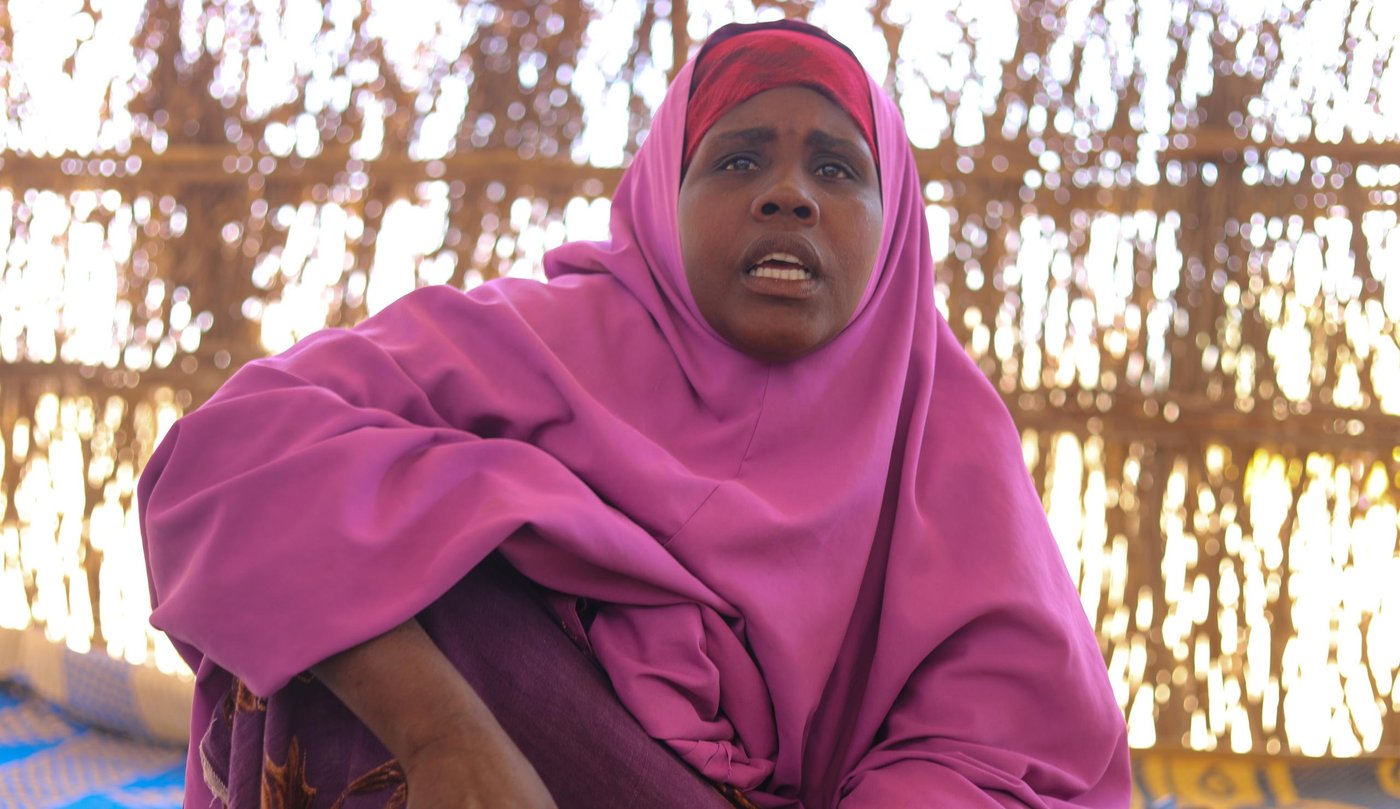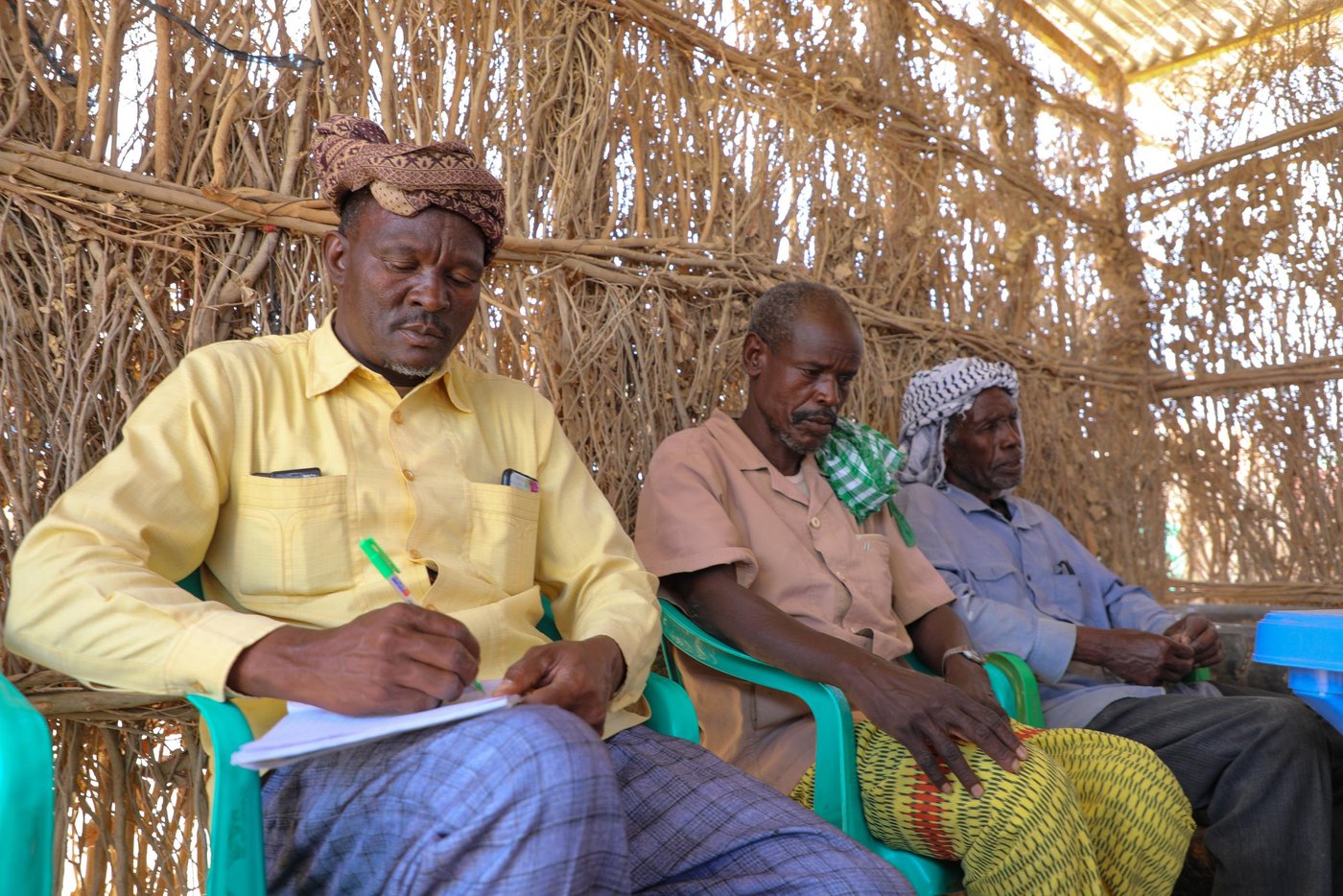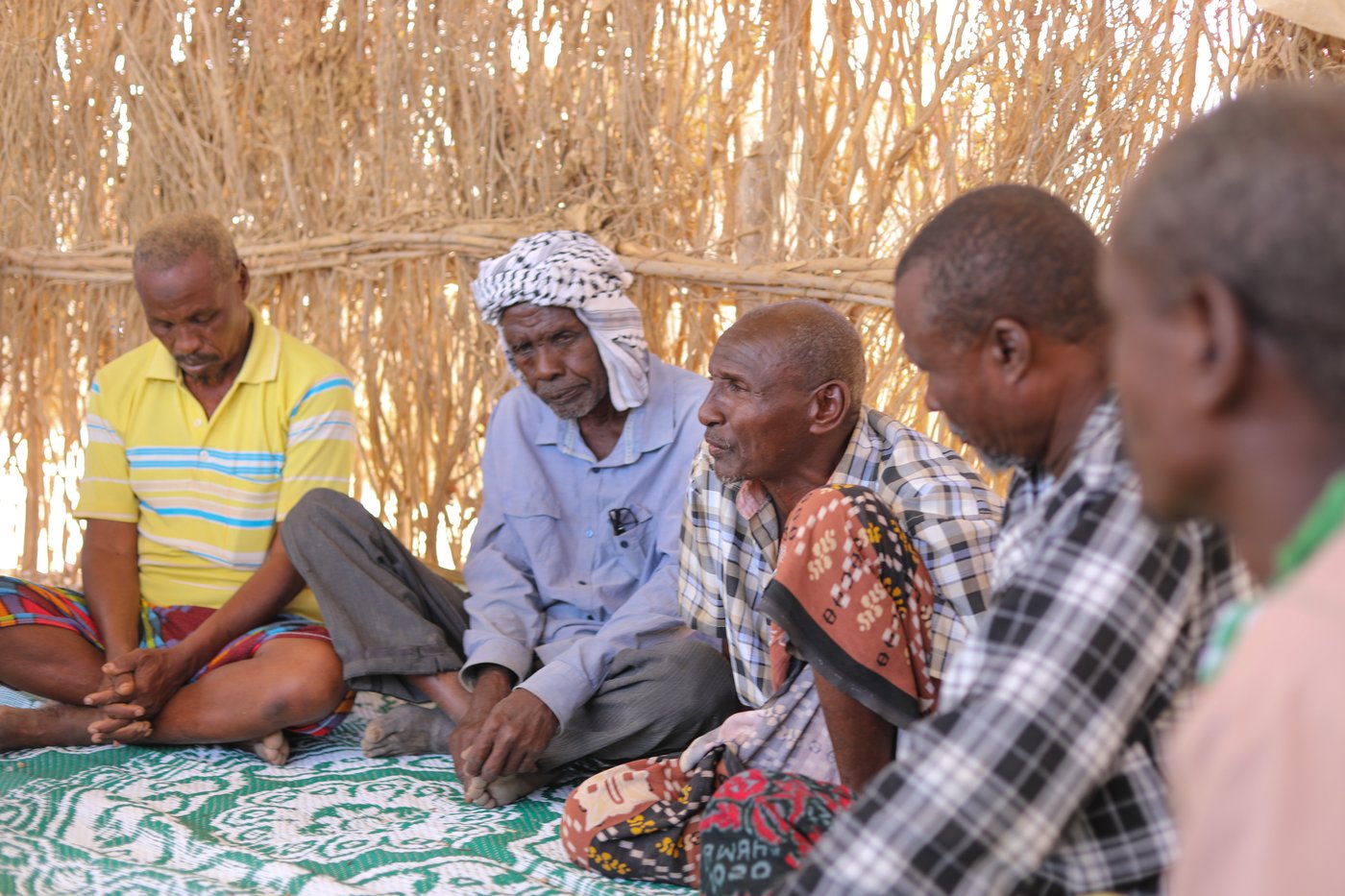NRC empowers communities with dispute-resolution techniques
To increase local dispute resolution capacities and strengthen community-based processes, the Norwegian Refugee Council (NRC), with the support of the International Organization for Migration (IOM), coordinated with local Camp Coordination and Camp Management (CCCM) partners in Beletweyne to empower existing committees and provide training in community-based collaborative dispute resolution. This training was arranged to ensure the inclusion and participation of women, minorities and marginalised communities.
The participants were trained in collaborative dispute resolution techniques and skills, aspects of protection and forced eviction of internally displaced people. To build their capacity, the committees were provided with materials such as stationery to help them register cases and document decisions for future reference.
During training, the committees dealt with more than twenty cases and used collaborative dispute resolution techniques to resolve disputes. This included the mediation of cases, negotiation of notice periods, alternative land and tenancy arrangements, arbitration of conflicts and conciliation when possible.

Resolving disputes and finding solutions
Muslimo Abdi, a 34-year-old mother of eight children, is currently living in the Alla-Amin 2 camp for internally displaced people in Beletweyne. She found justice through the collaborative dispute resolution system after finding herself in a very difficult situation.
Muslimo had a small shop in the camp, which allowed her to make a modest living. She was able to provide for her children while also saving some money to expand her business in the future. Her husband took her savings a year ago and went to Mogadishu to marry another woman.
“We lived together and we were a happy family, but my husband took all my savings and went to Mogadishu to marry another woman,” says Muslimo.
“I could never have imagined he would behave like this. I told his relatives to get involved and help me get my money back, but it didn’t work, and they were not able to resolve the case.”
Muslimo was not able to continue her small business since she was not able to stock her shop, so she approached the local collaborative dispute resolution committee to resolve the issue.

The committee brought together elders and intellectuals from both sides and then started mediation to find a solution to Muslimo’s case. After long discussions, Muslimo’s case was resolved and the committee ordered the husband to return the money so that she could continue her business and provide for her family.
“At first, the committee was not able to resolve the issue, but after several rounds of discussions and mediation sessions, my case was finally resolved, and I am very happy about that,” says Muslimo.
It has made a huge difference to Muslimo and the other camp residents, who now have better access to collaborative dispute resolution for issues related to housing, land and property rights. The committee helps to ensure that justice in the camp is impartial and non-discriminatory.
This was made possible thanks to the generous support of the European Commission’s Department for Civil Protection and Humanitarian Aid Operations (ECHO).


